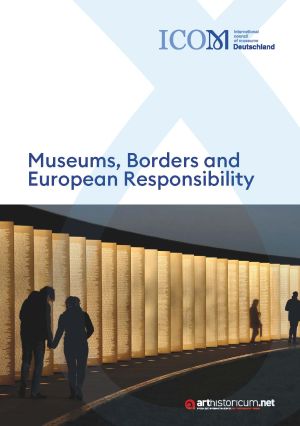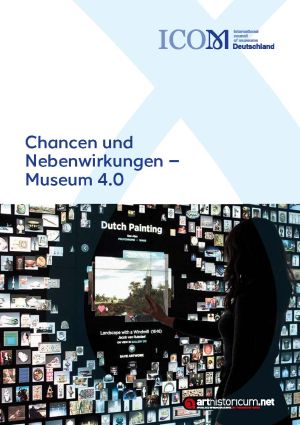Behrendt, Jan
Museums, Borders and European Responsibility: One Hundred Years after the First World War
Museums are the treasure troves of cultural heritage, places of remembrance and self-assurance. But whose stories are they telling, and why? What is remembered in museums, and what is forgotten?
One hundred years after the end of the First World War, museum practitioners and scholars from Europe and beyond reflect anew on the impacts of the war. They consider the central role museums play in the accurate and authentic representation of war, the shaping of commemoration and the preservation of war‘s legacy. They explore difficult issues including diverse and conflicting perspectives of war, political influence and the question of European responsibility.
They argue for the confident inclusion of critical voices and diverse perspectives, and deeper thinking about the impact of violence and dogma on European society.
Chancen und Nebenwirkungen – Museum 4.0: Jahrestagung von ICOM Deutschland, 14. bis 16. November 2019 in München. Tagungsband
The challenges of museums in the digital age are manifold, but where to begin in view of the multitude of tasks? The 2019 annual conference of ICOM Germany used interesting case studies – Museum4punkt0, NUMiD, ViSIT (University of Passau), Cadolzburg (Bavarian Palace Administration), Digital Strategy for Museums (State Office for Non-Governmental Museums in Bavaria), and many others – to discuss different perceptions of the field of digitization in cultural establishments, individual fields of action, and difficulties that often arise in museum reality. As diverse as the museums are, the twenty or so examples presented make it clear: If digitization is to be a successful sustainable opening of museums to the digital and thus extend beyond individual digital mediation offers, emphasized Julian Nida-Rümelin in the introduction, it must go hand in hand with a digital mindset and a corresponding work culture. Furthermore, a digital strategy that suits one’s own institution as well as sufficient resources and the support of the museum sponsors are important requirements.








